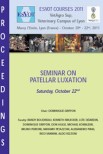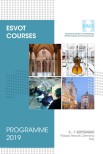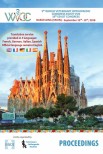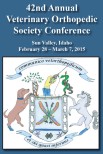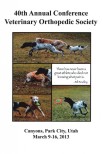OBJECTIVE: To investigate the effect of hemicerclage suture on the occurrence of fractures during advancement of an elongated bi-directional hinged osteotomy (EBHO) for tibial tuberosity advancement (TTA) in dogs.
STUDY DESIGN: Experimental ex vivo study.
ANIMALS: Canine cadavers (n = 14) METHODS: A uniform EBHO was performed in 28 cadaveric hind limbs (n = 28) from 14 skeletally mature, medium-sized, mixed breed dogs. Paired limbs were randomly assigned with or without hemicerclage suture. The osteotomy was slowly spread (TTA) at a rate 1.5 mm every 15 seconds to a maximum distance of 24 mm or until a fracture was detected as an audible crack, visible propagation of the distal osteotomy or transverse fracture of the cortical bridge. The occurrence of fractures was compared between limbs with hemicerclage and without hemicerclage (control) suture using a chi-square analysis. The advancement distance at the time of fracture was compared using a paired t test. A P value <.05 was considered significant.
RESULTS: The cumulative occurrence of intraoperative fracture was significantly greater without hemicerclage than with hemicerclage at advancements of 12, 15, 18, and 24 mm. The mean (SD) spreading distance at the time of fracture was significantly less without hemicerclage at 16.85 (4.10) mm with a range of 12-24 mm, than with hemicerclage at 20.62 (2.39) mm with a range of 18-24 mm (P = .029).
CONCLUSION: The occurrence of immediate intraoperative fracture during advancement of an EBHO of the tibial tuberosity is less when a hemicerclage suture is placed.
The effect of polydioxanone hemicerclage suture on the occurrence of fracture during tibial tuberosity advancement with an elongated bi-directional hinged osteotomy
Journal
Bleakley S, Palmer RH, Bresina S, Roca SP, Tepic S. Vet Surg. 2017 May; 46 (4): 486-493.
